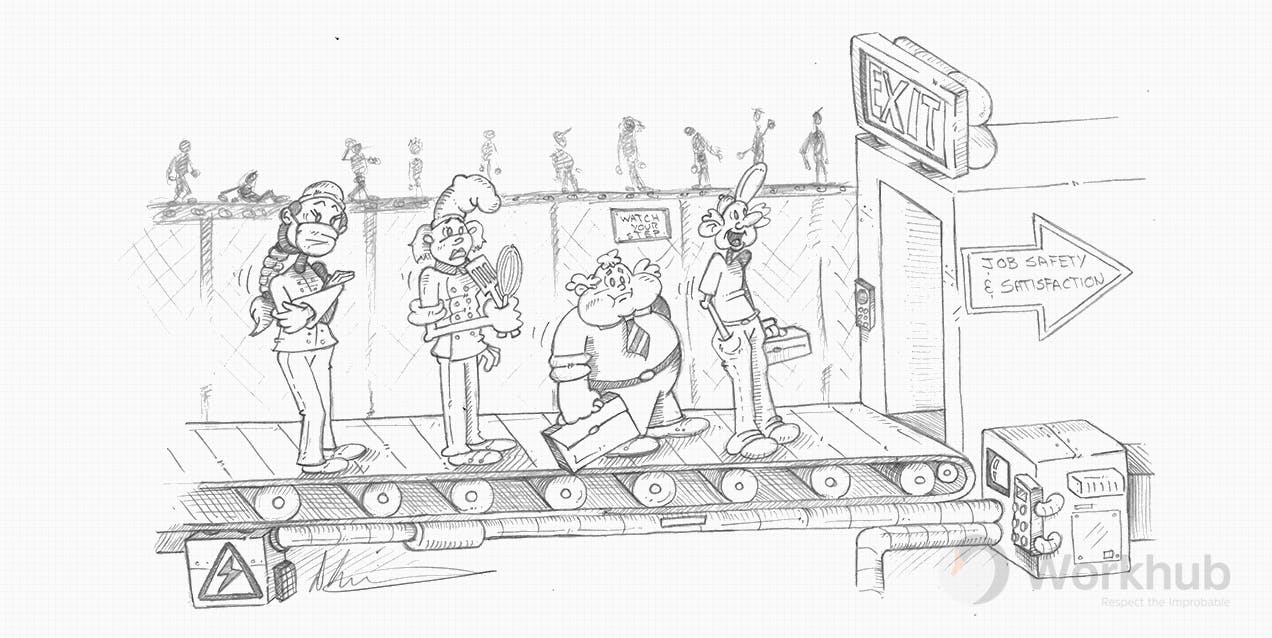
Change! That’s one thing we sure have gotten used to hearing about over these last two years. Since 2020, we have seen numerous changes to our world; many of them have been abrupt and triggered by the pandemic. One sector which has been particularly impacted is employment.
As we have begun to reevaluate what our jobs mean to us and how they impact our lives, this has in turn affected the employment market, especially with many enterprises switching from working in an office setting to working from home. Early this summer, the Financial Post published an article, which estimated that a colossal 24 per cent of Canadians have switched employment over this last little while. Yes, you heard it, that is nearly a quarter of the population! With such a dramatic shift in only a short time, the phenomenon has been coined the Great Resignation or the Great Reshuffle.
Effects on health and safety
Since the pandemic, workers have become more concerned about workplace health and safety than ever before. Due to new and more stringent health and safety policies introduced over the last two years, if workers don’t feel safe at work or don’t feel their needs are being met, many would simply now rather look elsewhere for employment. After the experience of working from home for the last two years, workplace culture, harassment and employee wellbeing have also become hot topics. Essentially, people are leaving their jobs for higher standards and better employment opportunities, as they are no longer willing to put up with their old ways of life.
With the swift transitions of staff to new hires, important foundational knowledge about a particular job or workplace is unfortunately being lost. The documentation of important workplace policies and procedures has therefore never been more important to ensure a swift and seamless handover process. Due to rapid shifts in employment and labour shortages, this has in turn caused some disruptions to the usual training process in workplace health and safety. In some cases, it has caused the risk of workers being rushed through the usual training process or on the job without adequate training, leaving more room for workplace injuries or serious accidents.
Due to employment gaps, some workers have also had to carry a higher workload than usual to make up for the losses. This can of course lead to burnout and overwork, which is especially a concern when it comes to health and safety. Mentorship has therefore never been more important in the workplace.
Retaining workers
Looking to steer clear of new hires and labour shortages? One way of possibly dodging the timely and costly hiring process would be to listen to workers' needs. Consider implementing necessary changes that will allow workers to feel more comfortable and satisfied with their jobs. What types of improvements would it take for workers to stay at your company? Employee suggestions, meetings, polls and surveys are all useful tools.
Mental health
One of the more positive changes that has occurred over the last two years has been a lasting impact as far as discussions about mental health and bringing awareness to mental health related struggles to the workplace. This has encouraged many employers to investigate more extensive mental health related training and other resources.
In conclusion, our work life balance has seen some serious changes since 2020, which has in turn impacted the health and safety industry. In our rapidly changing world, we are only likely to see further changes in employment down the road, so it is important to ensure that your company is doing everything it can to meet workers' needs and keep up to date with changes to health and safety.
Workhub provides a complete health and safety compliance software that allows easy management of training, procedures, policies, inspections, and more, centralized in one easy-to-use hub.
Still have questions?
Let our knowledgeable sales team give you a full product tour and answer any specific questions you may have.
Workhub Internal